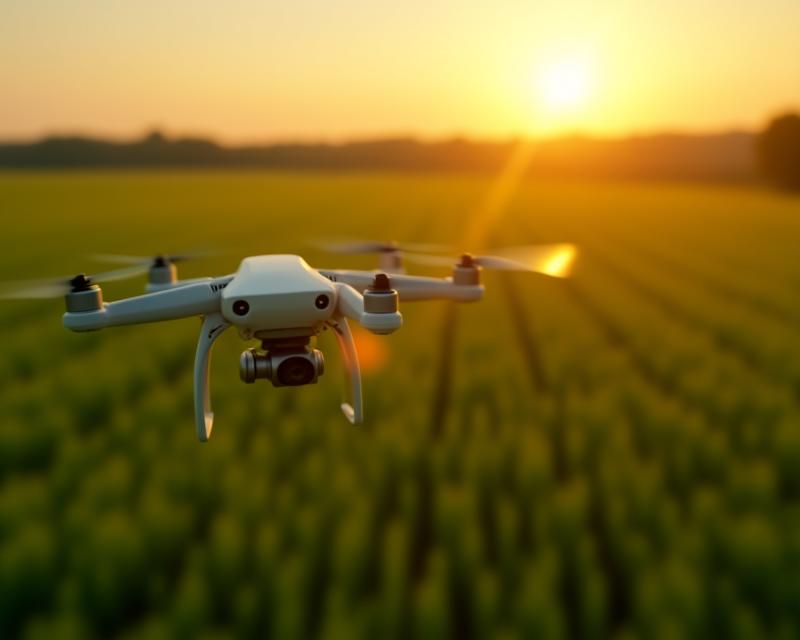Drones: A Farmer's New Best Friend?
Publish in Sustainable Farming el 21/07/2025 01:07
Drones: A Farmer's New Best Friend?
For generations, farmers have relied on observation and experience to manage their crops. But technology is rapidly changing the game, and one of the most exciting advancements is the use of drones! These unmanned aerial vehicles (UAVs) are no longer just toys; they're powerful tools helping farmers like you improve efficiency, save time, and boost yields. Let's take a look at how some farms are successfully integrating drones into their daily operations.

Real-World Examples of Drone Use
One great example is a vineyard in California, using drones equipped with multispectral cameras. These cameras capture data invisible to the naked eye, revealing stress in the vines before it becomes visible. This allows the vineyard to target irrigation and fertilization efforts precisely where they're needed, saving water and reducing chemical use. Another farm in the Midwest uses drones for livestock monitoring. Drones can quickly survey large pastures, identify sick or injured animals, and even help locate stray livestock. This proactive approach to animal health can significantly reduce losses.
Benefits of Drone Integration
The benefits of using drones are numerous. Firstly, they provide a much faster and more comprehensive view of your farm than traditional methods. Instead of walking fields for hours, you can get detailed maps and data in minutes. This allows for quicker identification of problems like pest infestations, nutrient deficiencies, or irrigation issues. Secondly, drones can help optimize resource use. By pinpointing areas needing attention, you can reduce waste and save money on water, fertilizer, and pesticides. Finally, drones improve safety. Inspecting hard-to-reach areas like tall trees or steep slopes becomes much safer with a drone.
Challenges to Consider
Of course, integrating drones isn't without its challenges. The initial investment in a drone and associated software can be significant. There are also regulatory hurdles to navigate, including FAA rules regarding drone operation. You'll need to understand airspace restrictions and obtain any necessary permits. Furthermore, data analysis can be complex, requiring some training or the assistance of a data specialist. Finally, weather conditions can impact drone flights; strong winds or heavy rain can ground your operations. Despite these challenges, the potential benefits of drone technology make it an increasingly attractive option for farmers of all sizes.
If you're curious about exploring drone technology for your farm, start by researching local regulations and considering a trial run with a drone service. The future of farming is increasingly aerial, and drones are poised to play a vital role in ensuring a sustainable and productive future for agriculture.





